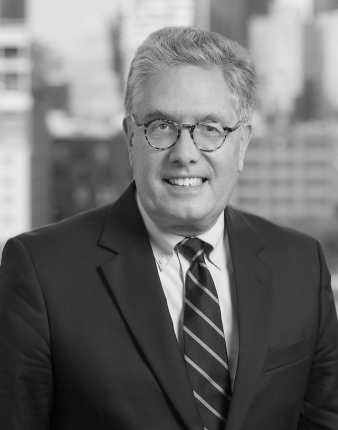


Starling, an applied behavioral sciences technology company, has announced the appointment of Thomas J. Curry to its Senior Regulatory Advisory Board. Curry joins current advisory board members Rick Ketchum, former CEO of the Financial Industry Regulatory Authority (FINRA), who also headed regulation for the NYSE and served as President of NASDAQ; and Martin Wheatley, inaugural CEO of the UK Financial Conduct Authority and, earlier, CEO of the Hong Kong Securities & Futures Commission.
Curry was nominated by President Obama to serve as head of the Office of the Comptroller of the Currency (OCC). As Comptroller of the Currency (2012-17), Curry led the US federal agency that charters, regulates, and supervises national banks and federal savings banks.
Now a partner at Nutter McClennen & Fish LLP, Curry advises clients on financial services regulation, governance, and policy issues as a member of the firm’s Corporate and Transactions Department and co-leader of its Banking and Financial Services group. Curry also chairs the Milken Institute’s Fintech Advisory Committee and is a founding board member of the Alliance for Innovative Regulation, which aims to help regulators to adopt innovative technologies.
“I am excited to join Starling and its advisory board as the company brings new tools for non-financial risk management to market. Managing the operational risk associated with conduct is an ongoing area of concern to bank management and their supervisors,” said Curry. “Starling offers an innovative platform that helps business leaders to manage such risks, and to promote the efficiency and productivity of their organizations. I look forward to providing guidance as they expand.”
“Long before it was fashionable, Tom argued that company culture was a key driver of risk and thus demanded board-level attention,” said Starling CEO, Stephen Scott. “When such attention is inadequate, it can deeply damage firms, their leadership – and also the regulators charged with safeguarding stakeholders,” he added. “Given his uniquely wellinformed perspective, Tom appreciates this more than most,” Scott said. “He will be a great asset to us as we craft technology tools that permit firms to manage non-financial risks from a position of foresight.”
About Thomas J. Curry
Curry is a Boston-based partner in the Corporate and Transactions Department at Nutter McClennen & Fish LLP. As co-leader of the firm’s Banking and Financial Services group, he advises clients on a range of policy, financial services regulation, governance, and other issues.
Curry chairs the Milken Institute’s Fintech Advisory Committee and is a foundation board member of the Alliance for Innovative Regulation, which aims to help regulators to integrate technology into every stratum.
He was nominated by President Obama to serve as Comptroller of the Currency – head of the Office of the Comptroller of the Currency (OCC). Curry served in that role from 2012 until May 2017, leading the US federal agency that charters, regulates, and supervises national banks and federal savings banks. As Comptroller, he also served as ex-officio member of the Board of Directors of the Federal Deposit Insurance Corporation (FDIC) and the Financial Stability Oversight Council.
Before becoming Comptroller, Curry served as a member of the Board of Directors of the FDIC, nominated to that role by President George W. Bush and confirmed by the U.S. Senate in 2003. He has served five Massachusetts Governors as the Commonwealth’s Commissioner of Banks: from 1995-03, appointed by Governor William F. Weld (Republican) and from 1990-91, appointed by Governor Michael S. Dukakis (Democrat).
Curry has served as a member of the Group of Governors and Heads of Supervision, the oversight body of the Basel Committee on Banking Supervision. He served as Chairman of the Federal Financial Institutions Examination Council (FFIEC) for a two-year term, from 2013-15. More recently, he served as an expert consultant for the International Monetary Fund.
Curry was the Chairman of the Conference of State Bank Supervisors (2000-01) and served two terms on the State Liaison Committee of the FFIEC, including a term as Committee chairman. He was Acting Commissioner of Banks (1994-95) and First Deputy Commissioner and Assistant GC within the Massachusetts Division of Banks. He entered state government in 1982 as an attorney with the Massachusetts’ Secretary of State’s Office. Curry is a 1978 graduate of Manhattan College, summa cum laude, and received his law degree from New England School of Law.
About Starling
A globally recognized Regtech pioneer, Starling is an applied behavioral sciences company that helps customers to create, preserve, and restore value. Combining machine learning and network science, Starling’s Predictive Behavioral Analytics platform allows managers to anticipate, and to shape, the behavior of employees and teams. Starling reveals how relational trust dynamics within an organization impact business performance — predictably. Its proprietary algorithms generate actionable insights that allow leaders to optimize performance and to identify and mitigate culture and conduct risks before they cascade into crises.
In addition to Curry, Senior Regulatory Advisors to the company include Rick Ketchum, former CEO of the Financial Industry Regulatory Authority (FINRA), who also headed regulation for the NYSE and served as President of NASDAQ; and Martin Wheatley, inaugural CEO of the UK Financial Conduct Authority and, earlier, CEO of the Hong Kong Securities & Futures Commission.
Siew Kai Choy is inaugural member of a new Risk & Governance Advisory Board, (a former MD at GIC, Singapore’s sovereign wealth fund, he was Director of the Data & Analytics Department, Head of Governance and IT in the Public Markets Group, and founded GIC Innovation Labs).
And Starling is also guided by a Scientific & Academic Advisory Board that includes John Seely Brown (“JSB,” former director of the Xerox PARC Research Lab), and professors Nicholas Christakis (director, Yale Human Nature Lab), Karen Cook (director, Stanford Institute for Research in the Social Sciences), and Thomas Malone (director, MIT Center for Collective Intelligence).